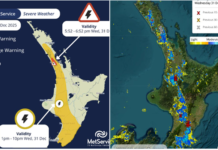Commentary by Rochelle Bailey and Charlotte Bedford
[maxbutton id=”2″ ]
Summary: Two Australian researchers have praised the New Zealand government’s support for RSE workers, many of whom are Tongans, but warn that there are still problems to be overcome.
They say that problems in Australia are a lesson for what might happen here.
In this commentary they argue that all efforts must be made to support RSE workers to keep working for the foreseeable future. This needs to include help them send money home and provide workers with wi-fi and/or mobile data plans to stay in touch with families at home.
They said seasonal workers in Australia have raised the issue of being able to buy groceries. They said locals were stockpiling goods and workers could not get to supermarkets until after their work day ended.
There also needed to be more flexibility to allow workers to shift between employers to keep them employed as the peak harvest season for some crops approached.
As Kaniva News reported yesterday, this is now allowed in Australia.
Rochelle Bailey is a Research Fellow at the Department of Pacific Affairs at the Australian National University in Canberra. Charlotte Bedford is an independent researcher working on Pacific labour mobility.
The New Zealand government has responded swiftly to the complex and rapidly changing environment caused by the COVID-19 global pandemic.
From March 25 the country went into Alert Level 4 or ‘lockdown’ in an attempt to slow the spread of the coronavirus. Recognising the significant disruption to the domestic economy, measures have been introduced to support employers and new immigration measures have been implemented, effective from April 2, to support the many foreign workers, students and visitors who remain in the country due to border closures and associated travel restrictions. All temporary visas due to expire before April 1 and between April 1 and 9 July, will be automatically extended until late September 2020.
This is welcome news for Pacific (and a small number of Asian) workers in New Zealand under the Recognised Seasonal Employer (RSE) scheme, of which there are more than 9,700 currently in the country to harvest, pack, and maintain crops for the horticulture and viticulture industries. As ‘essential’ workers, they can continue working during the lockdown, providing a critical supply of seasonal labour, especially for the apple and kiwifruit industries, both of which are in their harvest periods.
Support for workers
RSE workers have received information on COVID-19 from their RSE employers and Toso Vaka o Manū, the Ministry of Business, Innovation and Employment’s programme to help Pacific countries gain economic and social benefits from labour mobility. Efforts are underway to translate relevant information into different Pacific languages to make it readily accessible to workers, and disseminate information on social media sites.
As part of the COVID-19 Economic Response Package, RSE workers are entitled to government funding, equating to NZ$585.50 per worker per week, if they cannot work during the lockdown because their employer’s business is not operating or the employer cannot afford to pay them due to reduced business activity.
If an RSE worker is required to self-isolate while in New Zealand, due to illness or close contact with a confirmed COVID-19 case, they are also eligible for the government’s wage subsidy. RSE employers apply for the subsidy on behalf of their workers, and provide accommodation and pastoral care facilities during the 14-day isolation period.
Workers will continue to pay their accommodation and other living costs. Under existing medical insurance, RSE workers are entitled to receive medical treatment for any presenting conditions, including COVID-19, and treatment for the virus will be covered by New Zealand’s Ministry of Health.
To abide by New Zealand law, and new measures for physical distancing and minimal staff interactions, RSE employers are required to set strict rules for the safety of their workforce, including restricting workers’ ability to leave their worksites and prohibiting engagement with people other than those they live and work with.
This is to minimise the risk of RSE workers’ contact with people that could spread transmission of the virus. Employers must ensure workers fully understand the new requirements, and are informed of the symptoms of the virus and what actions should be taken if a worker becomes unwell. If workers are concerned an employer is not following COVID-19 workplace recommendations, these concerns should be reported to their RSE liaison officer.
RSE visas and work continuity
The extension of RSE workers’ visas and provision of financial and medical support, if required, are essential to maintaining workers’ welfare and safety while they remain in New Zealand. There are, however, some logistical and operational challenges associated with implementing these measures.
Workers in the RSE scheme are on a Limited Visa which means they are only entitled to work for the RSE employer specified on their visa. RSE workers cannot switch to another employer or find a job in a different industry.
If RSE workers’ visas are extended under the same visa conditions, then workers are presumably tied to the same RSE employer as their original visa. For RSE employers who can provide continuous work over the next six months, or until travel restrictions are lifted, the extension will work well.
However, if the RSE employer has run out of work, the situation becomes more problematic. RSE employers can apply for the wage subsidy for workers, but should they also be required to provide accommodation and pastoral care facilities to workers who are no longer actively in their employment?
New Zealand’s horticulture and viticulture industries are seasonal, with strong peaks in labour demand for the apple and kiwifruit harvests in particular. Most RSE employers require their largest numbers of workers from February until June. RSE workers are employed for winter pruning work in grapes and kiwifruit, but in smaller numbers of around 6,000–7,000 between July and September.
If current travel bans remain in force, the concern will be finding work for the 9,700 RSE workers still in the country. This may create challenges for RSE employers who are also trying to employ as many New Zealanders as they can to support those who have found themselves out of work due to COVID-19.
To further support RSE employers and workers, there needs to be greater flexibility to shift workers between employers, tasks and regions. If possible, this may require extending RSE visas under different, more flexible visa conditions that do not tie workers to a single employer, as well as opening up the range of jobs that can be performed by RSE workers to ensure they remain in work.
The kiwifruit harvest, located mainly in the Bay of Plenty, is now underway and requires more than 20,000 workers. Ideally, RSE workers who have finished their employment in other regions will be relocated for kiwifruit work, to replace the approximately 3,200 RSE workers that have not been deployed to New Zealand for horticulture and viticulture due to the current travel bans, as well as other temporary foreign workers who usually comprise around 20 per cent of the kiwifruit workforce.
There are logistical difficulties to overcome when moving and accommodating workers who must remain in their self-isolation groups and severely limit their interactions with others, and this will be a challenge in the Western Bay of Plenty where there is already a shortage of seasonal worker accommodation due to a tight local housing market.
Nevertheless, all efforts must be made to support RSE workers to remain in employment for the foreseeable future. This also includes efforts to assist workers to send money home to their families via online remittance services, and providing workers with wi-fi and/or mobile data plans to stay in touch with family members at home. Employers and pastoral care hosts should also check that workers are able to access essential grocery items. Seasonal workers in Australia have raised this as a concern due to locals stockpiling goods and workers being unable to access supermarkets until after their workday.
The New Zealand government is providing important safe-guard measures to protect the RSE workforce. To ensure this support continues over the coming months requires a collaborative approach by all key stakeholders: government, industry, and RSE employers and workers.
The solid government-industry partnership, that has formed the backbone of the RSE scheme over the past 13 years, is more critical than ever at this challenging time. COVID-19 presents an opportunity to further strengthen this partnership to ensure the safety and well-being of all RSE workers who provide an essential labour force for New Zealand’s horticulture and viticulture industries.
The main points
- The New Zealand government has responded swiftly to the complex and rapidly changing environment caused by the COVID-19 global pandemic.
- Recognising the significant disruption to the domestic economy, measures have been introduced to support employers and new immigration measures have been implemented, effective from April 2, to support foreign workers.
- This is welcome news for the 9700 Pacific workers in New Zealand under the Recognised Seasonal Employer (RSE) scheme.
For more information







